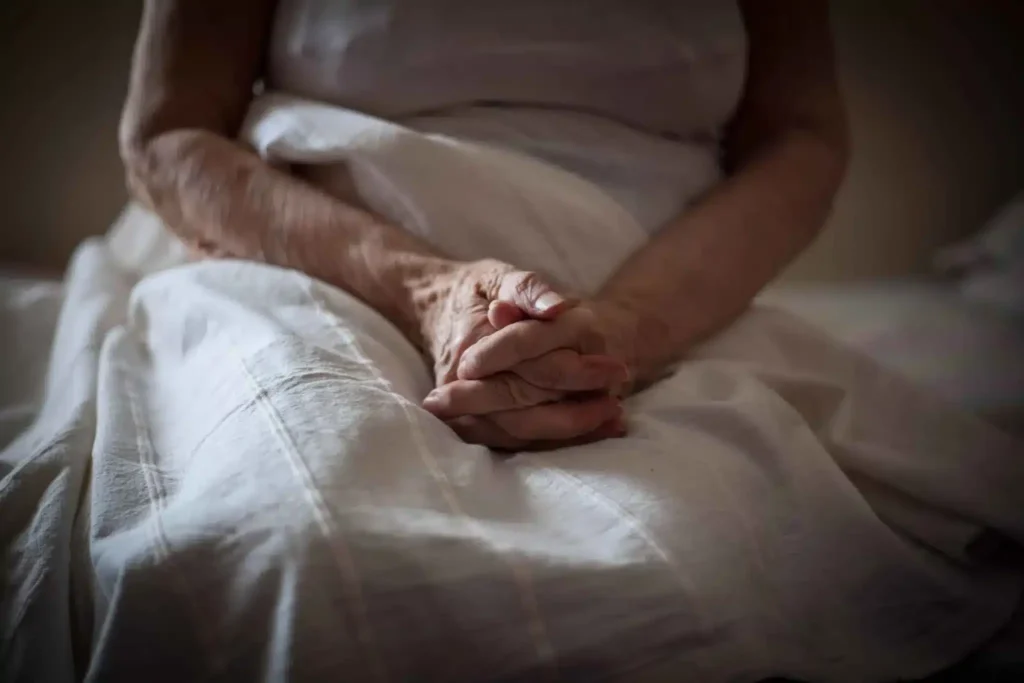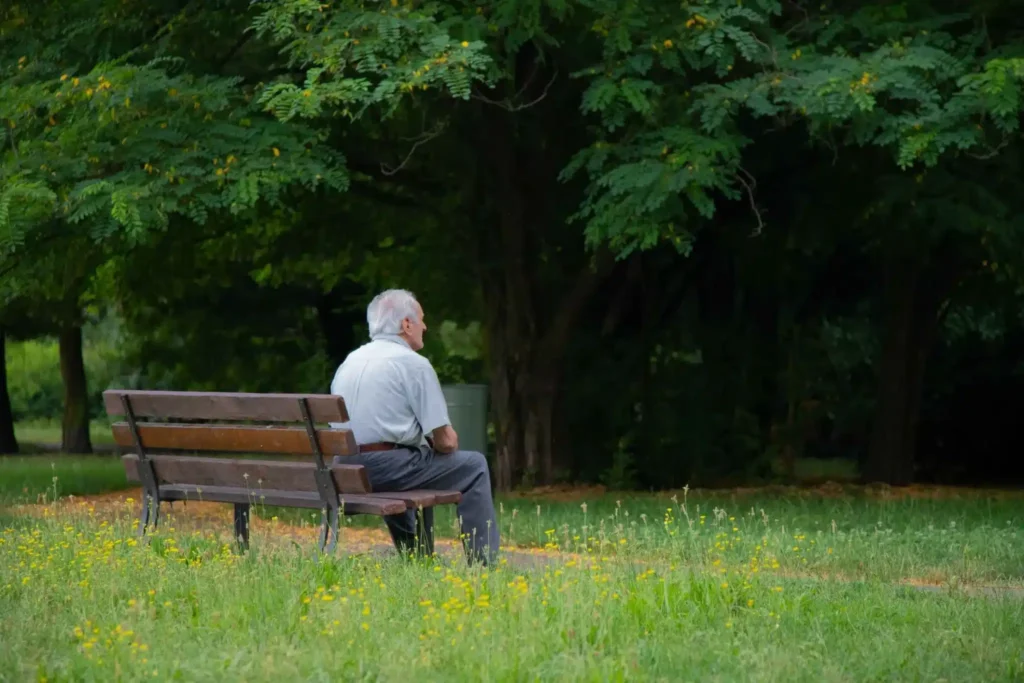If you suspect your loved one is being abused or neglected in their nursing home, you must take action against the nursing home facility and other liable parties.
With help from a compassionate Greenville nursing home abuse lawyer, you can demand justice for your family member. Connect with a top-rated attorney today and learn more about your legal options. We’ll work hard to ensure that those responsible for the abuse are held accountable to the fullest extent of the law.

Our Greenville nursing home abuse lawyers are dedicated to helping our clients get through some of the most challenging times in their lives. We have extensive experience handling nursing home abuse and neglect cases and have won our clients millions of dollars in trial verdicts and insurance settlements.
When you hope to maximize your financial compensation, our team at Smith Jordan is here to fight for your rights. We will be by your side as you pursue legal action against the nursing home facility, abuser, and even the nursing home’s parent company, where applicable.
Smith Jordan Attorneys at Law works for nursing home abuse victims and their family members on contingency. You do not have to pay anything for our legal representation until we win your case.
If you suspect your loved one is suffering from nursing home abuse or neglect, you must get an experienced Greenville nursing home abuse lawyer working for you. However, your personal injury attorney will handle only the civil claims process. If you hope to ensure the liable parties are brought to justice, you should also report suspected abuse to:
Your Greenville nursing home negligence lawyer can help you gather the evidence needed to report abuse in South Carolina. Since most healthcare providers and other parties in the nursing home industry are mandated reporters, there should be evidence, including medical records, that can be used to support your allegations.
The government agencies and police departments investigating may have enough evidence to bring forward criminal charges for assault and violations of mandated reporting responsibilities.
With help from your attorney, you can ensure those responsible for the abuse your loved one endured are held accountable not only in civil court but criminal court as well.
Suppose you worry that a senior citizen in your life has suffered, or could suffer, from nursing home abuse. In that case, you must acquaint yourself with the types of activities that elder abuse encompasses and understand the importance of having a nursing home neglect attorney.
Here are some types of nursing home abuse that you may need to watch out for and fight through legal action.
When many people think of abuse, physical abuse comes to mind first as the most visible example. Acts of physical abuse may include painful pulling, pushing, kicking, punching, slapping, and general rough handling. Striking a resident with an object and using unnecessary physical or chemical restraint also counts as physical abuse.
Sexual abuse also belongs in this category of nursing home abuse because it involves physical contact; any non-consensual sexual contact between a resident and a staff member qualifies as sexual abuse. Nurses and attendants who have regular close contact with residents may take advantage of their access and proximity to commit sexual abuse.
Emotional abuse can do just as much damage to elderly individuals as physical abuse. Emotional abuse includes verbal abuse such as shouting, insulting language, threats, and other statements intended to inflict emotional harm. Abusers may also administer a form of psychological torment by blaming, scapegoating, embarrassing, isolating, or frightening residents.
Bear in mind that emotional abuse does not have to be purely verbal; it can involve any behavior that produces emotional distress. In this respect, it overlaps with other kinds of nursing home abuse.
Many cases of nursing home abuse revolve around the issue of neglect. Neglect may take the form of withholding necessary food, water, medicine, and other essential medical care. It can also occur if staffers fail to provide minimal standards of daily care to keep nursing home residents comfortable, from bathing to regularly turning off residents to prevent bedsores.
Some instances of neglect may stem from malicious intent by staff members but may occur as a side effect of poor management or limited resources. For example, an understaffed facility or untrained employees may miss critical care assignments or leave residents sitting in public areas.
You may have a case for suing the nursing home for neglect, regardless of whether the neglect proves accidental or intentional. Even when an individual employee has committed the act of neglect, the law may hold the institution vicariously liable for damages.

Sometimes, abuse in nursing homes affects residents’ financial assets rather than their bodies, minds, or emotions. Examples may include outright theft of a resident’s petty cash, valuables, and other personal possessions. It can also include misuse of a resident’s bank account information to drain the account of its assets.
Financial abuse may also include unauthorized changes in residency arrangements. For example, residents may suddenly find themselves in a cheaper room or sharing with a roommate instead of enjoying a private room. As a result, the residency rates and required payments may increase, or residents may keep paying for better amenities than they now receive.
If your family member is mentally and physically capable of doing so, they may be able to file a nursing home abuse lawsuit in South Carolina on their own.
However, if you have a power of attorney for your loved one, you may have the authority to file the wrongful death action on their behalf. If you are unsure who has the right to pursue the nursing home neglect or abuse claim in your case, be sure to discuss your concerns with your personal injury attorney.
Your loved one has the right to be repaid for every single loss when they have suffered nursing home neglect or abuse. These losses can include a combination of compensatory damages, including economic and non-economic damages.
Economic damages describe monetary losses. Your family member may be entitled to compensation for:
Non-economic damages will ensure your family member is compensated for the ways the abuse has affected their lives. Some examples of non-economic losses available in nursing home abuse cases include:
Punitive damages are only awarded in cases where the defendant’s actions are malicious, intentionally harmful, or grossly negligent. Punitive damages may apply more often in nursing home abuse cases than other types of personal injury claims. This is often because nursing home abuse does not affect a single patient, or the nursing home facility has received repeated complaints of nursing home neglect or abuse.
Your nursing home abuse lawyer in Greenville, SC, will work tirelessly to ensure you receive compensation for your loved one. This may mean we must file a medical malpractice claim with the nursing home’s insurance company or pursue your case in civil court. Insurance claims may recover specific damages, while others can only be retrieved through a trial verdict.
Some common injuries to look for when you suspect nursing home abuse include:
Do not be surprised if multiple parties are named in your nursing home abuse claim.
The caregiver or nurse responsible for taking care of your family member could be held accountable if they made a mistake, abused your loved one, overlooked injuries, or tried to cover up for a coworker.
Nursing home facilities can be held accountable for the actions of their staff members and other nursing home residents.
If a medical device contributes to the nursing home neglect and abuses your loved one endured, we may have grounds for a claim against the device manufacturer, designer, or distributor.
When the nursing home hires contractors, or a third-party trespasser is responsible for the abuse your loved one suffered, you may have grounds for legal action against these parties.
To prove nursing home abuse based on a preponderance of the evidence, some of the evidence we may gather to support your case include:
You should hire a nursing home neglect attorney to help you navigate this complex claims process. You may go against the nursing home’s parent or nationwide insurance companies. Ensure you have an experienced legal advocate who understands how the laws work and will protect you from being taken advantage of.

Now that you know what forms of nursing abuse can take, bring your nursing home abuse concerns or allegations to a skilled South Carolina personal injury lawyer from Smith Jordan Attorneys at Law. Contact us online or call (864) 343-2222 with any questions.
©2025 Smith Jordan P.A.
All rights reserved | Privacy Policy